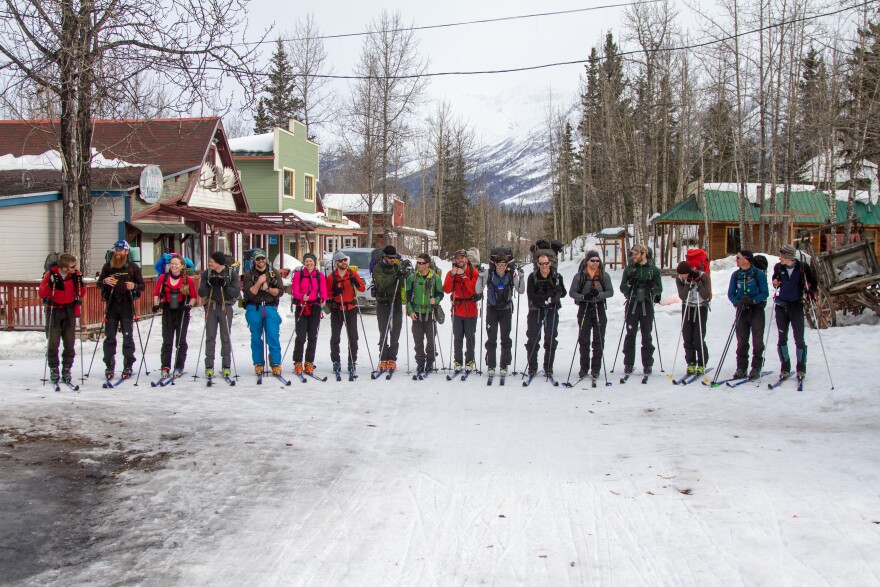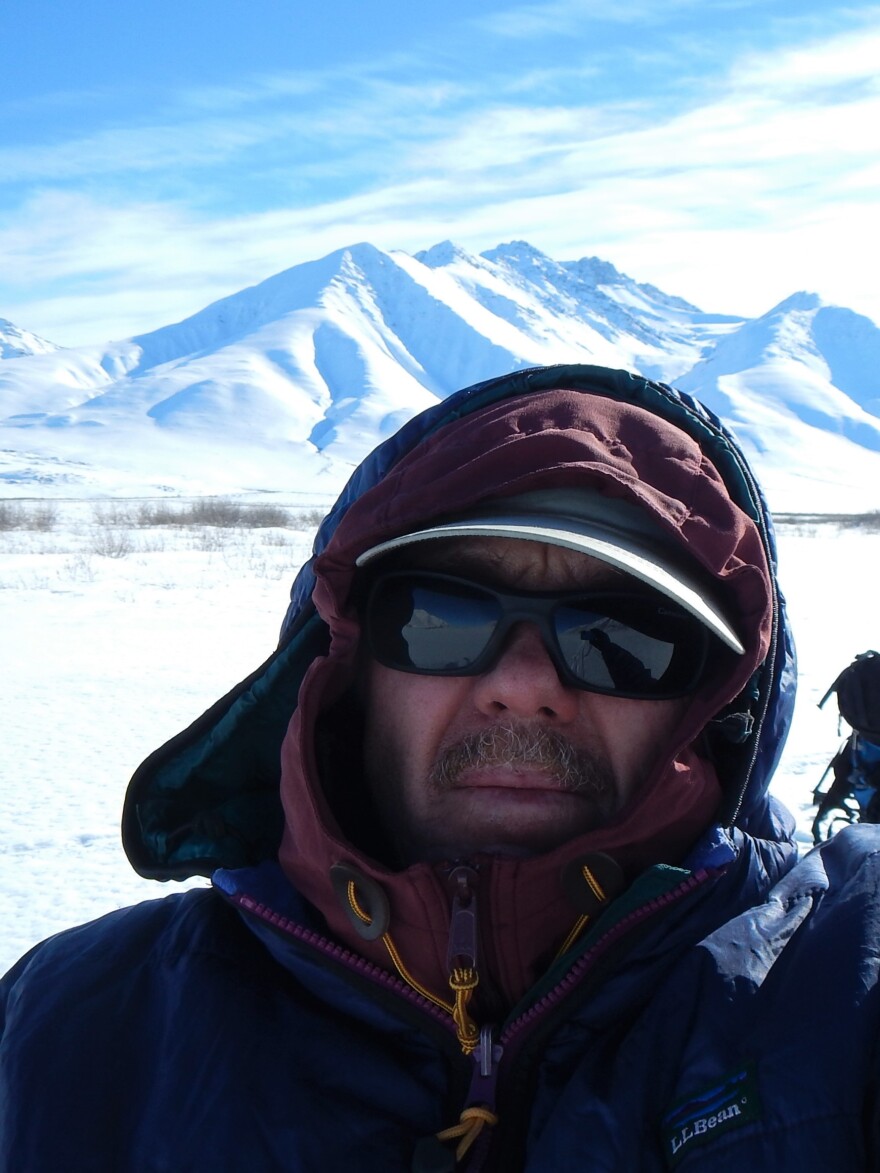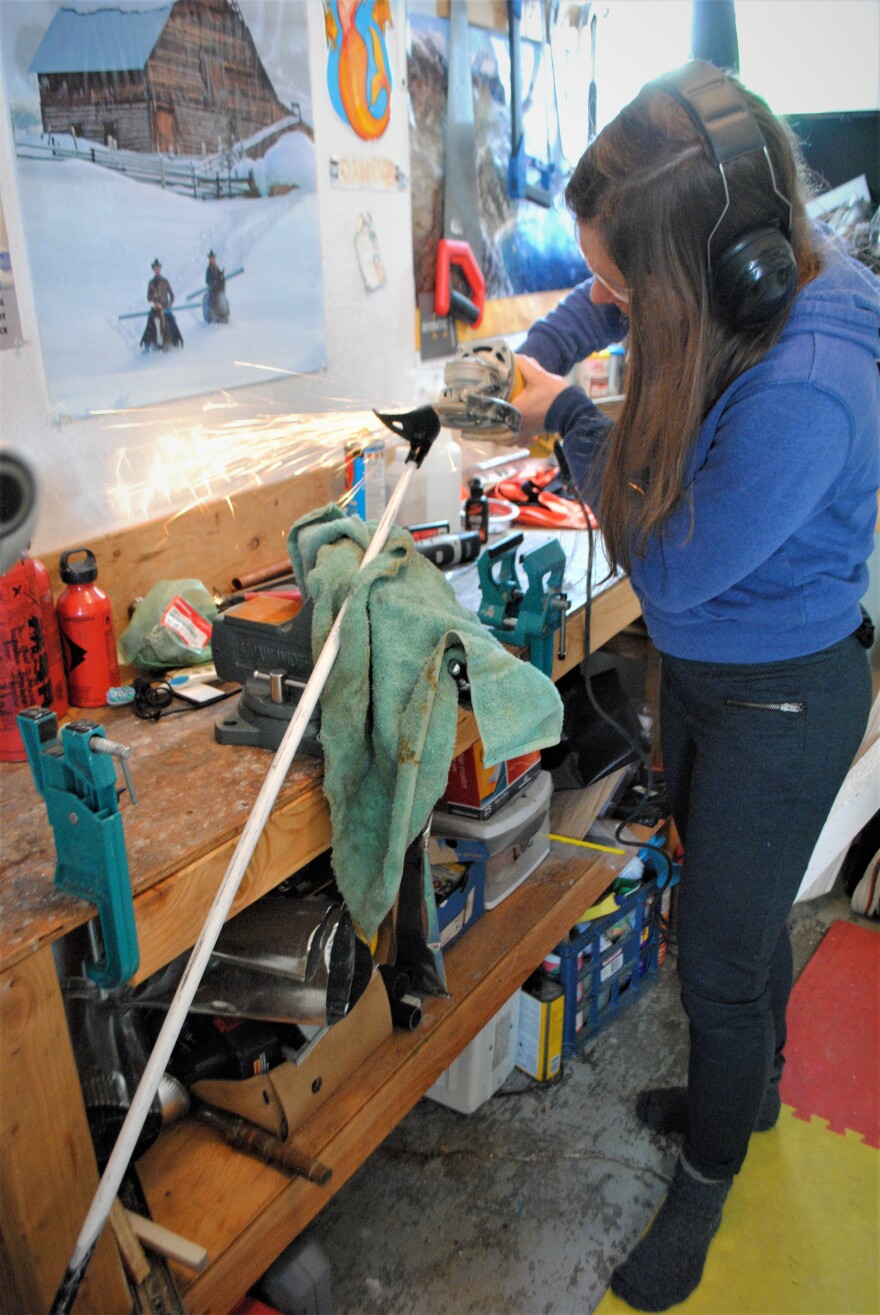A group of about 40 skiers are somewhere in the Brooks Range right now, competing in an event that's grueling, even by Alaska standards.
The annual Alaska Mountain Wilderness Ski Classic kicked off on Sunday, April 1. The group of skiers are tasked with traversing the Brooks Range and making to Wiseman by Sunday, April 8.
Luc Mehl is at home in Anchorage getting his gear ready for the event. Walk around the side of Mehl’s house and you’ll find his graveyard.
"This is a lonely ski because its partner broke in Iceland," Mehl says.
It’s Mehl's gear graveyard. Even some of his friends' gear ends up here.
“And these are Evan’s, who was one of my classic partners," Mehl says. "I don’t really know why they’re here. I don’t really want them, so they’re in my graveyard.”
Mehl grew up in the Kuskowkwim River village of McGrath and moved to Anchorage for high school. He’s a data scientist by day, and on the weekends, he skis. A lot.
“The last four weekends I’ve done a 20-mile day, 20-mile day, we did a 35-mile overnight, and then a 25-mile day," Mehl explains.
That's all in training for the Alaska Mountain Wilderness Ski Classic-- an event that has taken place every year for the last 30 years.
The course ranges from 100 to 200 miles and switches between the Brooks Range, the Wrangell-St. Elias Mountains and the Chugach Mountains.
The routes are dreamed up by a man named Dave Cramer. Mehl talks about him like he’s an Alaskan legend.
“He drove horses to Alaska and he trapped and he had hand to hand combat with a wolf," Mehl says.
Dave Cramer lives outside of Tok in the same cabin he and his wife built.
"The romantic vision of what Alaska is about-- trapping and hunting and so on-- I did those things," Cramer says.
And Cramer did, in fact, arrive on horseback in 1970.
Cramer has been organizing the classic since the late 1980s. He interviews every single applicant and has each one sign a waiver.
"This prevents the participant and/or the participant’s next of kin from blaming, suing, or even getting mad at the event organizers, coordinators and other event volunteers," the waiver reads.
"It's a release," Cramer explains. "What we're trying to say in plain language is that if you choose to do this, you do it at your own free will."
There are no aid stations along the way, just checkpoints, which sometimes are just a sheet of paper and pen inside a Nalgene hanging from a tree.
It's a grueling event, but Cramer says interest is on rise, especially among women.
"Let's see-- I've got a partial roster in front of me," Cramer says, and starts counting. "One, two, three, four..."
Sarah Histand is one of 10 women signed up for this year's ski classic. She's got safety glasses on and one ski pole clamped tight.
"The tips of my ski poles are a little dull from use," Histand explains. "I’m going to grind them so they’re super pointy-- as pointy as possible."
Histand is a mental health counselor and personal trainer from Valdez. She skied her first classic four years ago back when there was just one other woman heading into the wilderness.
“It made me challenge my idea of what I was capable of," Histand says. "I feel like that shaped my whole perspective on what we, as individuals, are all capable of.”
And now it's a challenge Histand and Luc Mehl will go through together. The two are dating and also partnering up for the ski classic.
It's been ten years since Mehl's first classic, and he says the end of the event -- that's always the best part.
"There's the elation of finishing and being done, because what you just did is really hard," Mehl says, laughing to himself.
And then people swap stories and compare blisters.
"You finish that in this warm, cozy little bubble with baked lasagna and people sharing this experience-- it ends up being pretty powerful," Mehl explains.
Luc Mehl and Sarah Histand expect to spend five nights together in the wilderness before finishing in the 31st annual Alaska Mountain Wilderness Ski Classic in Wiseman.




